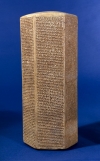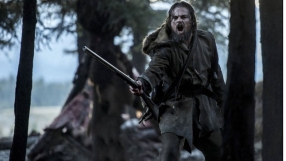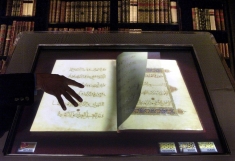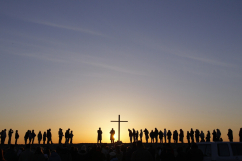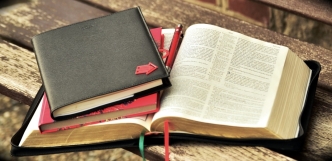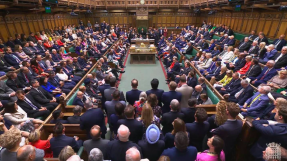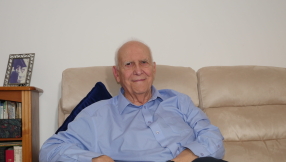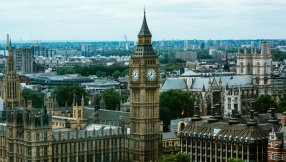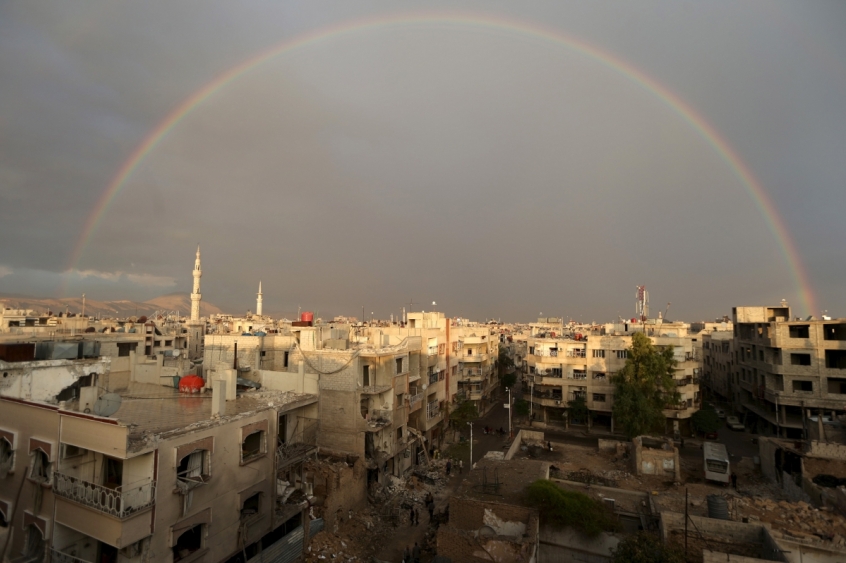
The story of Noah's Ark is one of the best-known in the Old Testament. We teach it to children in Sunday School and they love the idea of the animals going two by two into the ark. We don't major on what happens to the rest of the world when we teach the story to children, which is fair enough (though we ought to face up to it when we preach it to adults).
One part of the story that adults and children alike respond to, though, is the story of the rainbow. In Genesis 9:12-17, after the floods have gone down, God says he will make a covenant with human beings and that the rainbow will be a sign of it: "I have set my rainbow in the clouds, and it will be the sign of the covenant between man and the earth... Never again will the waters become a flood to destroy all life."
But why should it be a rainbow?
One reason is that there's a sort of poetic appropriateness about it. Rainbows appear after storms as the light from the sun hits the water droplets in the air and breaks into the different colours we don't normally see. A light rain may still be falling, but generally speaking you know when you see the rainbow that, no matter how fierce the storm may have been, it's over. You don't have to worry about rain never stopping.
But the other reason is this. The Hebrew word isn't "rainbow", it's just "bow", as in "bow and arrow". It is a war bow, a deadly weapon. There has been terrible destruction on the earth, and God has done it. He has rained down floods that have exterminated every living thing apart from what's in the ark. We are to imagine him taking aim at the world from heaven.

And the point about the bow that he "sets in the clouds" is that it's pointing the wrong way. It cannot be used as a weapon to threaten the world any more.
The sign is an enduring mark of God's loving care for the world he has made. In the context of the story, it means that he will not sweep the pieces from the board when the game isn't going his way; human beings will disappoint and betray him endlessly, but he will work with them patiently and lovingly to bring the world to good.
But the rainbow has a personal meaning for us as well.
George Matheson was a famous Scottish scholar and hymn writer. He had a hard life in many ways. It's probably not true, as is sometimes said, that his fiancée broke off their engagement because of his blindness (he was almost completely blind by the time he was 20), but he had trials enough. One of his hymns, O love that wilt not let me go, contains the verse:
O Joy that seekest me through pain, I cannot close my heart to thee; I trace the rainbow through the rain And feel the promise is not vain That morn shall tearless be.
God's war bow is turned away from all of us. No matter how low we may feel and whatever sins we may be guilty of, he will not cast us aside. He will always work for our good; we always have a future.
Follow Mark Woods on Twitter: @RevMarkWoods










